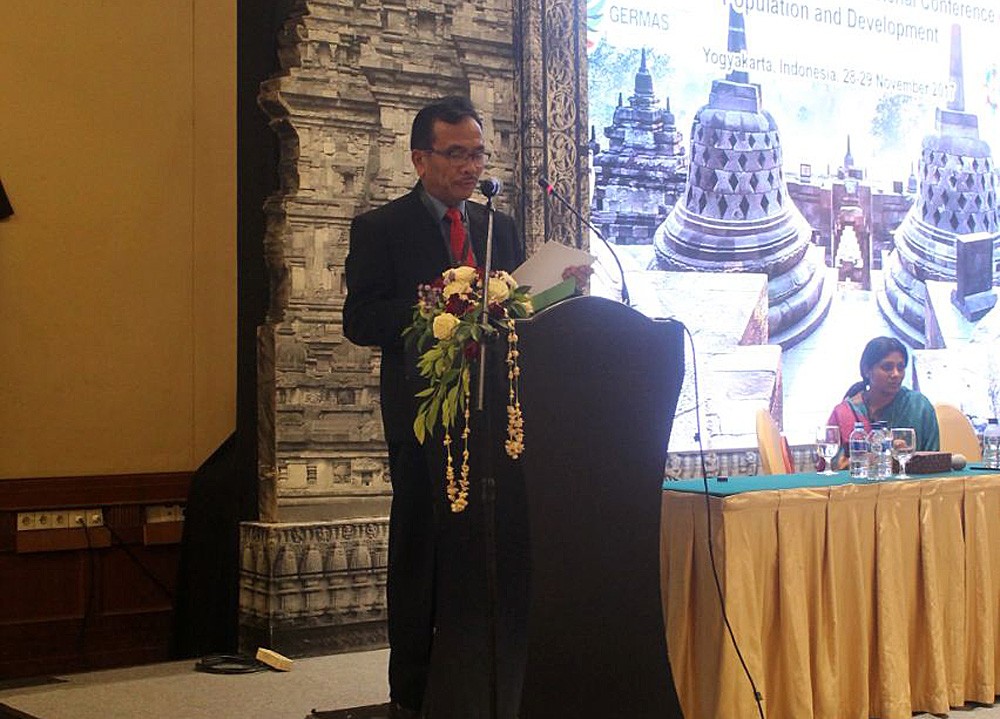Indonesia launches studies on population growth, health
Change Size
 National Population and Family Planning Board (BKKBN) principal secretary Nofrijal delivers a speech at a two-day international ministerial conference on population and development in Yogyakarta on Nov. 29 last year. (JP/Sri Wahyuni)
National Population and Family Planning Board (BKKBN) principal secretary Nofrijal delivers a speech at a two-day international ministerial conference on population and development in Yogyakarta on Nov. 29 last year. (JP/Sri Wahyuni)
T
he National Population and Family Planning Board (BKKBN) is conducting a series of scientific studies on the dynamics of population growth in Indonesia, a senior official said on Thursday.
BKKBN principal secretary Nofrijal said the studies were aimed at, among other things, drawing up a new demographic map of regions across the country and conducting a study on urbanization.
“We also need to conduct a study on reproductive health affecting teenagers,” Nofrijal told reporters after the opening ceremony of the Southeast Asia Biennial Conference on Population and Health in Batu, East Java.
The studies involve researchers from Portsmouth University in the United Kingdom and Brawijaya University in Malang under a project named the Portsmouth-Brawijaya Center for Global Health, Population and Policy.
Nofrijal added that the studies would also look into public perceptions about the use of contraceptives.
“We need to better understand what type of contraceptives are needed and favored by the public, both men and women,” Nofrijal said.
According to him, the studies would be used to draft the board’s medium-term development plan (RPJM) for the 2019 to 2024 period.
Read also: Indonesia must boost resilience with global risks on the rise: OECD
Indonesia is entering the initial stage of the much-vaunted demographic dividend where it is expected to reap huge rewards from its huge working age group (between 15 and 64 years old) who will reach 70 percent of the total population by 2030. The demographic dividend is expected to peak between 2025 and 2030. (dmr)









